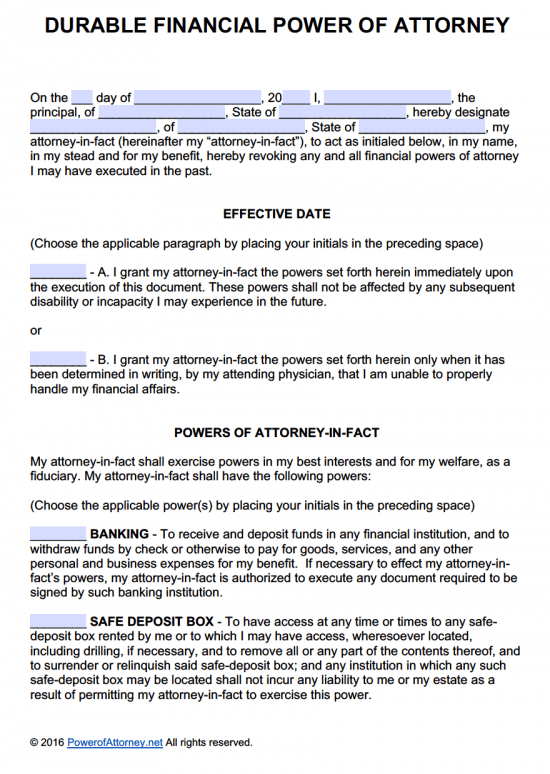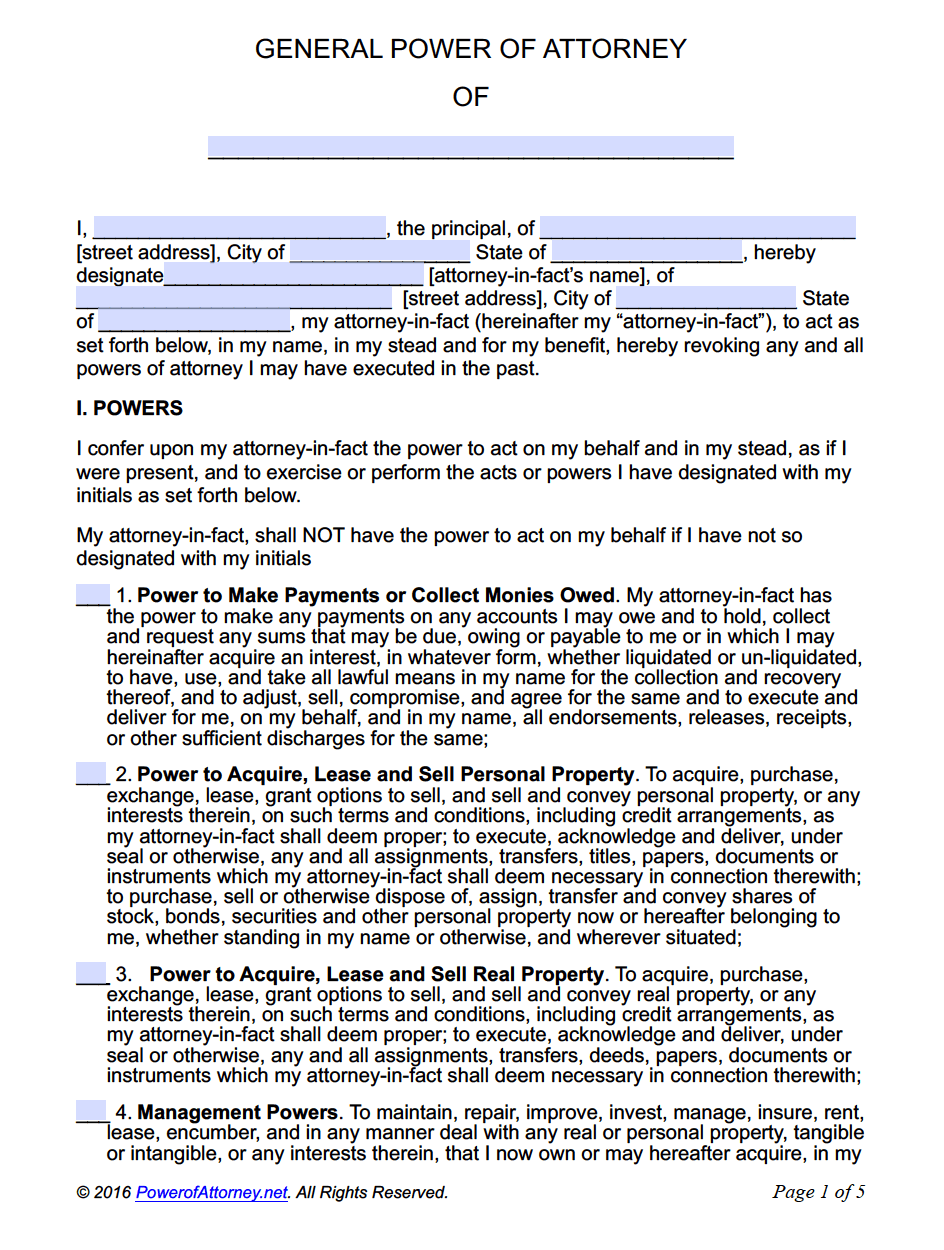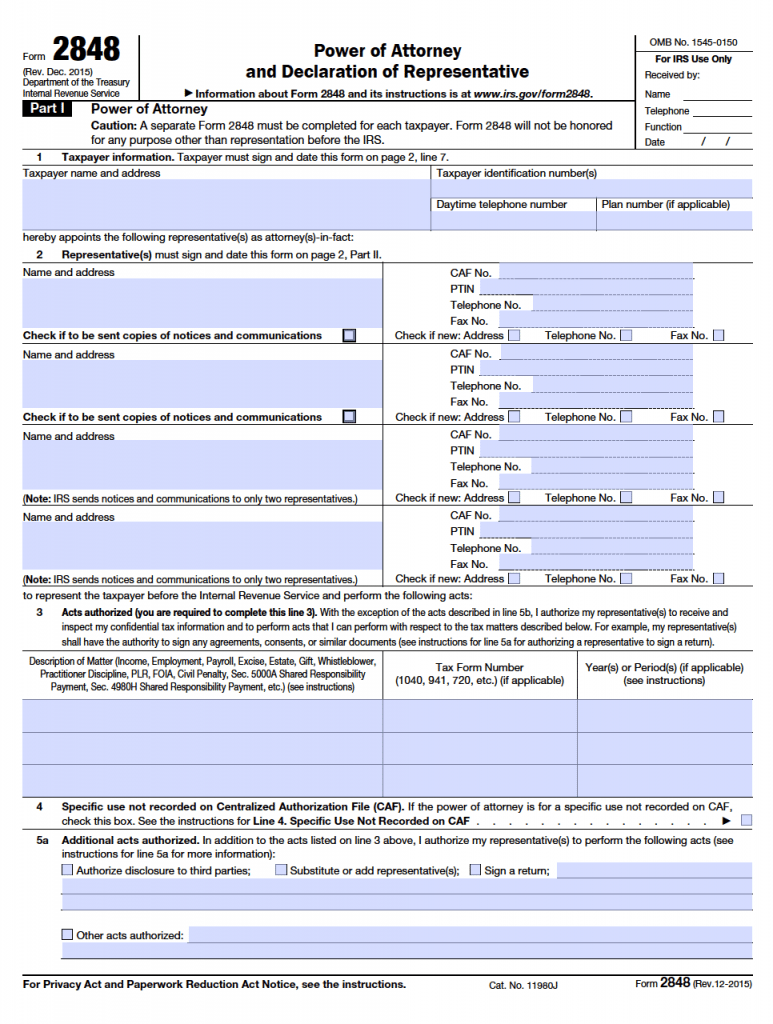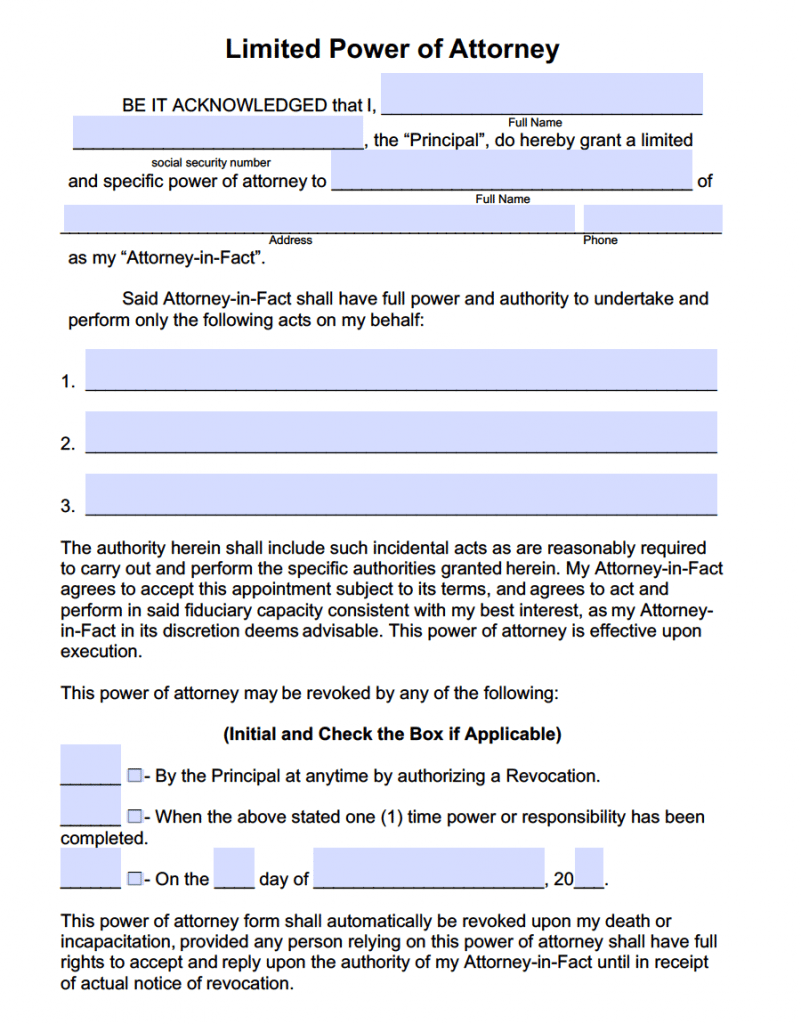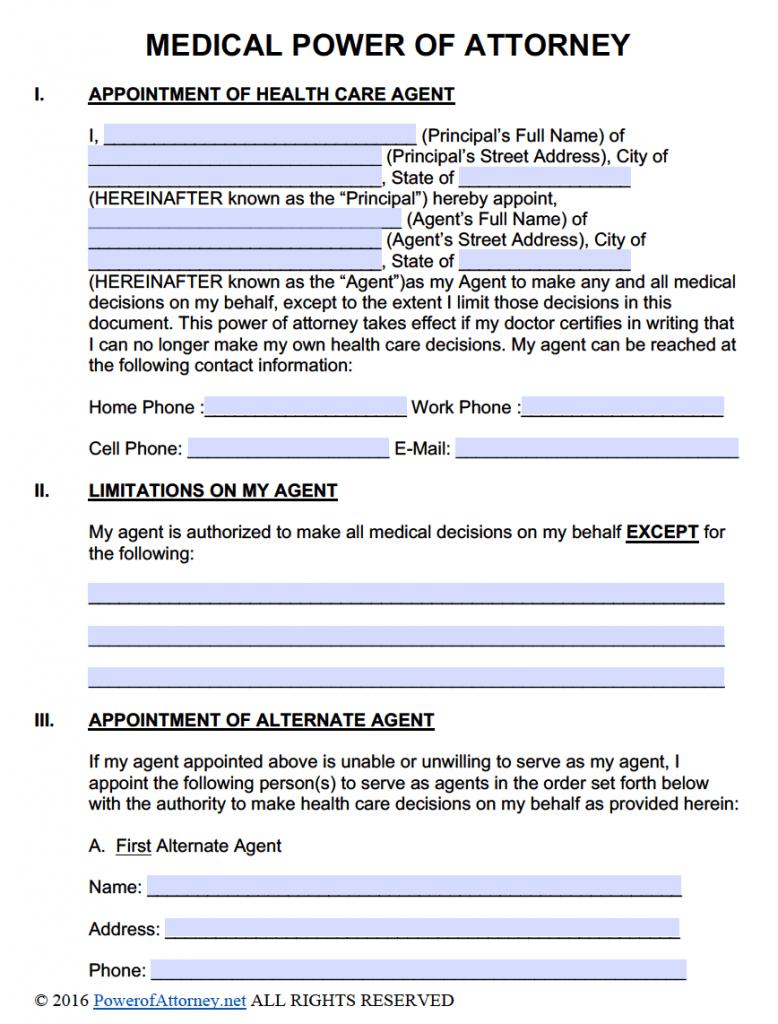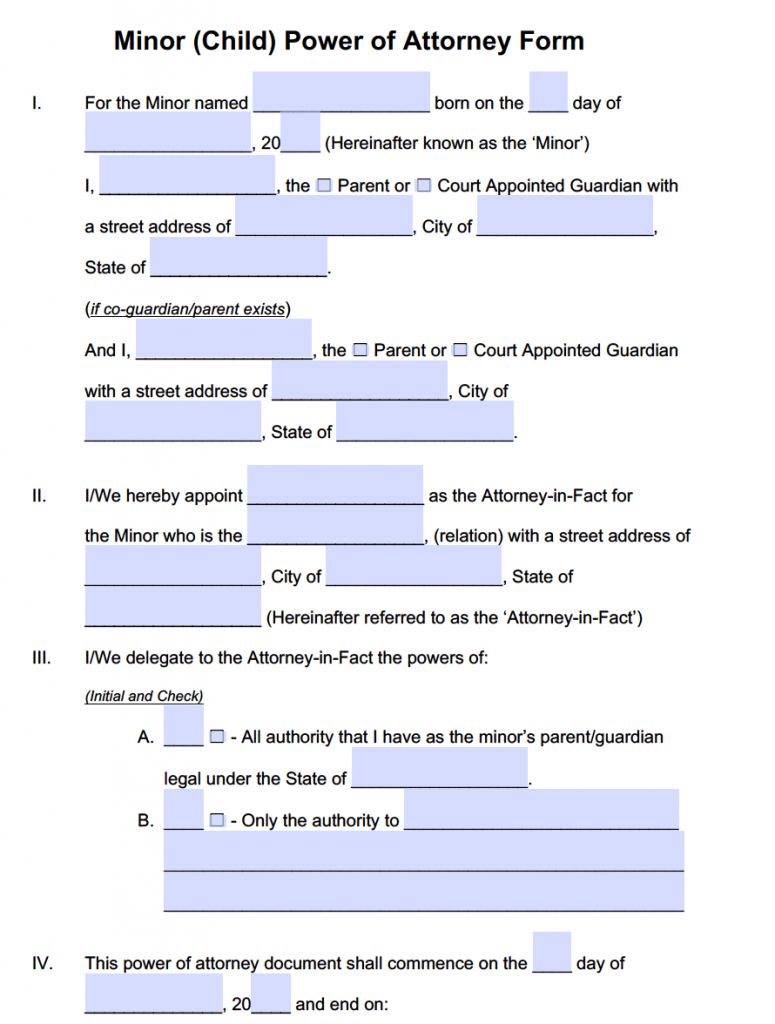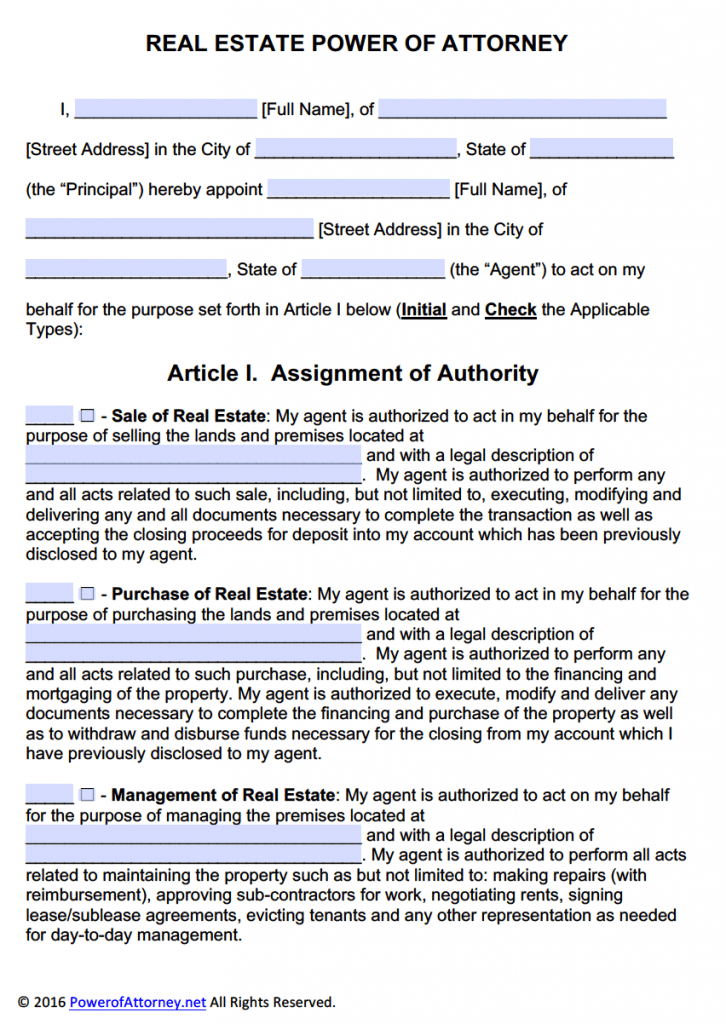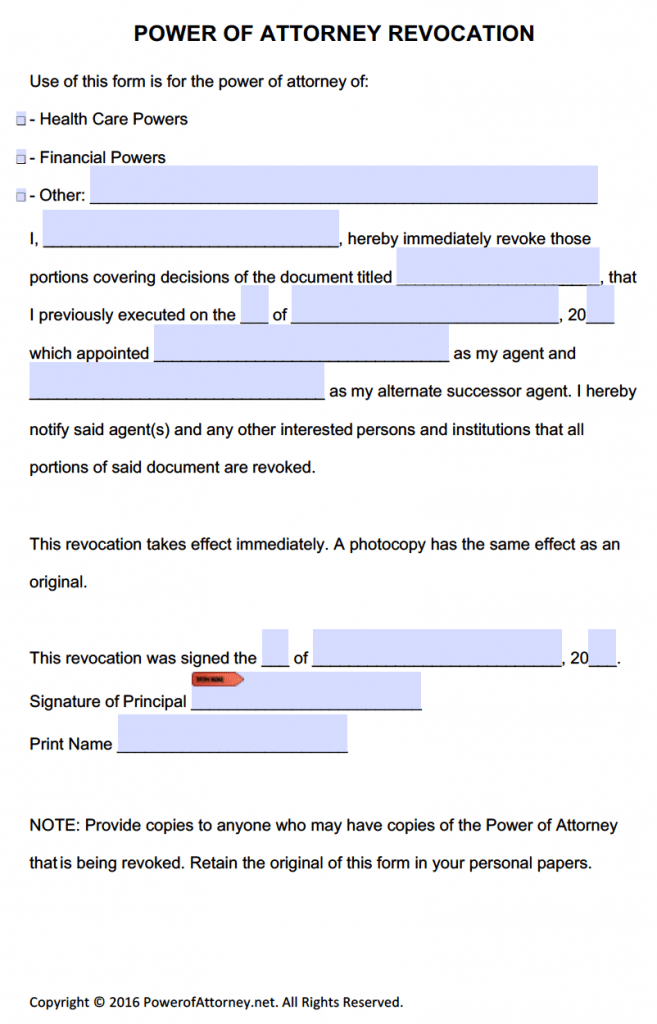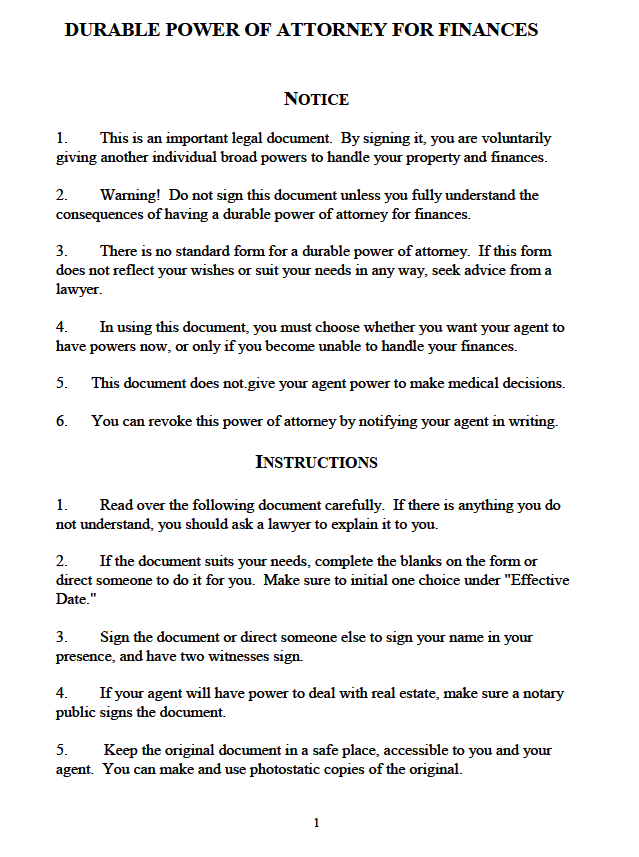 | Free Power of Attorney Forms |
What is Power of Attorney?
Power of attorney (“POA”) is a designation created by a person (“principal”) and given to someone else (“agent”) to make financial and medical decisions on their behalf. After the form is written, it’s required to be signed in accordance with State law (usually a notary or two (2) witnesses.
Forms By State
- Alabama
- Alaska
- Arizona
- Arkansas
- California
- Colorado
- Connecticut
- Delaware
- Florida
- Georgia
- Hawaii
- Idaho
- Illinois
- Indiana
- Iowa
- Kansas
- Kentucky
- Louisiana
- Maine
- Maryland
- Massachusetts
- Michigan
- Minnesota
- Mississippi
- Missouri
- Montana
- Nebraska
- Nevada
- New Hampshire
- New Jersey
- New Mexico
- New York
- North Carolina
- North Dakota
- Ohio
- Oklahoma
- Oregon
- Pennsylvania
- Rhode Island
- South Carolina
- South Dakota
- Tennessee
- Texas
- Utah
- Vermont
- Virginia
- Washington
- West Virginia
- Wisconsin
- Wyoming
Types
Durable Financial ($) – Allows representation for financial activity only. The “durable” term means that it allows the representation to continue even if the person should become incapacitated.
General Financial ($) – Not durable, therefore is only valid while the Principal is capable of making their own decisions.
IRS Form (2848) – Allows representation for federal taxes. This is usually granted to one’s accountant or attorney.
Medical (+) – Grants the Agent the authority to make healthcare decisions regarding the Principal.
Limited – Allows representation for a specific task. This task can be a one-time transaction or can be designated for a certain period of time.
Minor Child – Grants parental powers to the Agent over the Principal’s child for a designated period of time. Usually 6-months to 1-year.
Real Estate – Allows the Agent to act on the behalf of the Principal in regards to real property. There is a broad number of things that can be assigned to the agent such as selling/purchasing a property, management, leasing, etc.
Revocation – Allows the Principal to cancel a previous power of attorney form.
Download
How to Write
Step 1 – First select the form that pertains to your situation.
Step 2 – Fill out the form with the required information. The Principal and Agent must sign the document in the presence of the Notary Public. The Notary will then sign the form which validates the document. This is free in most states but may require a fee in others, if so, pay the fee and collect your copy.
Step 3 – Both the Principal and Agent should store their copies in a safe place.
The only way to TERMINATE the document is:
- Principal files a Revocation Power of Attorney Form.
- Principal assigns a new Power of Attorney.
- Either the Principal or Agent dies.
